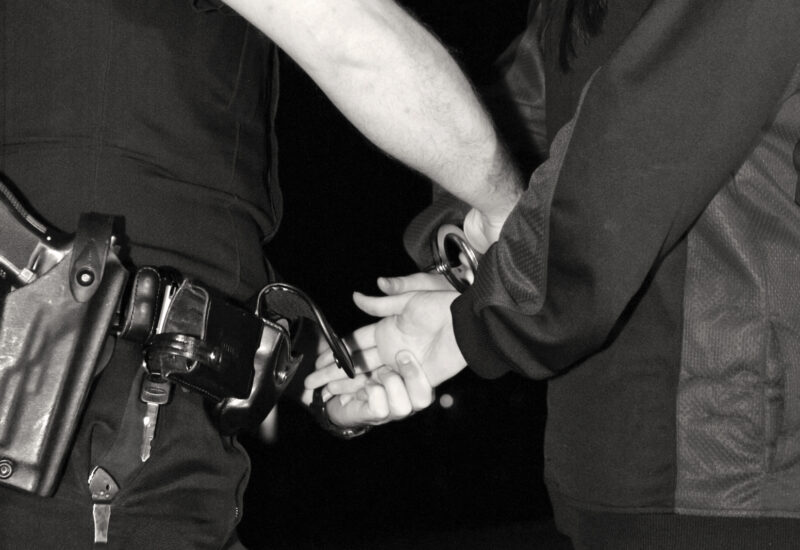
Getting pulled over by law enforcement is intimidating and stressful. How you react and handle yourself during a traffic stop matters and can impact the outcome of the stop.
Being pulled over can be stressful because it’s difficult to know what to expect. Most stops are routine and used to enforce minor traffic infractions, like illegal lane changes or running a red light. Whatever the reason, how you handle a traffic stop may help you receive minimal penalties.
If you are pulled over, stay calm and remember the following: 1) Pull over to the side of the road as quickly and safely as possible once you see the flashing lights or white spotlight of a police car. 2) Pulling over safely means you have to get off the freeway or drive a short distance to a side street, parking lot, or other safe spot. If this is the case, use your vehicle’s flashers to make it clear you intend to pull over. 3) It may take several minutes for the officer to leave their patrol car and approach your vehicle. They are likely running your license plates and dispatching their station to inform them of the stop. Use this time to collect your thoughts and prepare for the interaction. 4) Before the officer approaches, roll down the window, turn off the engine, turn on your interior lights, and put your hands on the steering wheel. These actions allow the officer to feel confident that you won’t drive away and don’t have a weapon. 5) Do not reach for anything until the officer asks for your driver’s license, proof of insurance, and vehicle registration. Before you grab anything, say something like “I am going to get my documents from my glove box.” 5) Do not get out of the car unless the officer asks you to. 6) Be compliant and polite during your interaction with the officer. While you might feel angry or wronged, being rude and aggressive will only irritate the officer. 6) While you should be cooperative, you do not want to say anything that can be used against you. It’s best to give noncommittal responses and not admit to guilt. If you decide to challenge a ticket or a more serious charge later, courts can consider anything you say during the stop as an admission of guilt.
What you do or don’t say at a traffic stop can influence the officer’s next steps. It can lead an officer to let you go with a warning. Conversely, it can also prompt them to go through the process to arrest you.
The Fifth Amendment of the U.S. Constitution protects you from self-incrimination. This means you have the right not to answer the officer’s questions. They may ask you about the reason for your travel, where you are going, or if you know the reason for the stop. You have the right to remain silent and not answer questions that could potentially incriminate you.
Traffic stops are the most likely time you’ll encounter law enforcement. During a traffic stop, both parties are trying to determine the situation and what will happen next. This can be a common source of rights violations, which can undermine any charges or tickets you face if you can prove it in court.
The Fourth Amendment to the U.S. Constitution protects you from unreasonable searches and seizures. This means officers need a search warrant before performing a vehicle search, but there are situations where an officer doesn’t need a warrant because of probable cause.
Under these circumstances, a warrantless search or seizure is legal if the officer has probable cause. Probable cause means the officer must have a reasonable belief a crime has been committed and a search of your vehicle may uncover evidence of the crime.
An officer is also within their rights to perform a search or seizure of what is in plain view in your vehicle. The Plain View Doctrine allows law enforcement to seize anything they can plainly see in your vehicle. If police stop you for speeding but you have a visible open alcohol container in your backseat, the officer can act appropriately without a search warrant.
If you or a loved one is in a bind as a result of a criminal charge, immediately contact a Seattle Criminal Attorney. A Criminal lawyer is not going to judge you and understands that everyone makes mistakes. Hiring a Seattle Criminal Lawyer to help can – at a minimum – reduce penalties and can help direct people on how to best deal with their criminal charge, and many times even get them dismissed. So, it should go without saying that someone cited for a misdemeanor or felony should hire a qualified Seattle Criminal Lawyer as soon as possible. Criminal charges can cause havoc on a person’s personal and professional life. Anyone charged with a crime in Washington State should immediately seek the assistance of a seasoned Seattle Criminal Lawyer. SQ Attorneys can be reached at (425) 359-3791 and/or (206) 441-0900.


